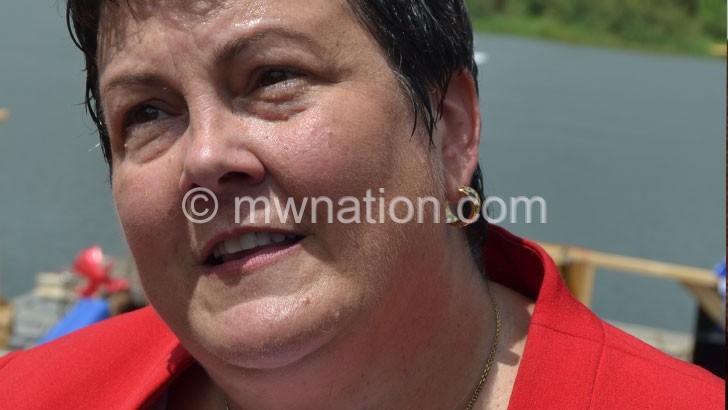Efficient procurement Builds confidence—US
The United States (US) Ambassador Virginia Palmer has called for efficient and effective procurement in the public sector to promote confidence in government and the economy.
She said this on Friday in her keynote address at the opening of the Eighth Annual Conference of Malawi Institute of Procurement and Suppy (Mips) in Mangochi.

“If taxpayers, companies and donors can see what is going in and what is coming out, they will invest. As procurement professionals, you are the gate-keepers to a better tomorrow for Malawi,” said Palmer at the conference that attracted about 300 procurement professionals from the public and private sector under the theme Transformational Leadership in Procurement and Supply Chain: A Catalyst for Economic Development.
She said procurement professionals are critical in saving money for companies and organisations, stressing that rules-based systems save real money by introducing genuine competition.
Palmer said this is crucial for both companies and governments, particularly in the developing countries such as Malawi where public procurement accounts for more than 30 percent of gross domestic product (GDP)compared to 10 to 15 percent in developed countries.
“You protect your organisations from sourcing risks, avoiding environmental problems and reputational damage. You can use your purchasing power to ensure that the goods you purchase are not harming the environment,” said Palmer.
Her pronouncements come on the back of a recent International
Monetary Fund (IMF) technical assistance report titled Public Investment Management Assessment which faulted the Malawi Government on project management and procurement.
The report said only 25 percent of tenders go through open and competitive process and that there is no procurement database.
But Palmer observed that as trusted advisers to government and businesses, procurement professionals could help to drive supplier innovation and reduce supply chain risk.
On his part, Mips president Joseph Ngalawa said it is disappointing that despite all efforts to uplift the profession, it continues to meet many challenges such as procurement functions being undertaken by people who are not professionals in the field; absence of procurement professionals at senior management level; lack of deliberate capacity building for procurement practitioners in various institutions and external forces and general lack of personal commitment for excellence by those practising the trade.
“Procurement has immense potential to contribute to the strategic direction of organisations. However, the continued belittling of the function and the profession in most organisations make it almost impossible for procurement and supply chain professionals to make any positive influence in procurement matters,” he said.
Ngalawa said there is need to take a proactive role to bring sanity in the field by ensuring that all procurement and supply chain professionals take a leading role in bringing about the transformation in the profession.
Public Procurement and Disposal of Assets Authority acting director general Timothy Kalembo said the annual conference is crucial because it discusses pertinent issues that affect the procurement profession.
He said procurement professionals have to meet to reflect on the profession and also discuss challenges that affect them and find solutions. n





